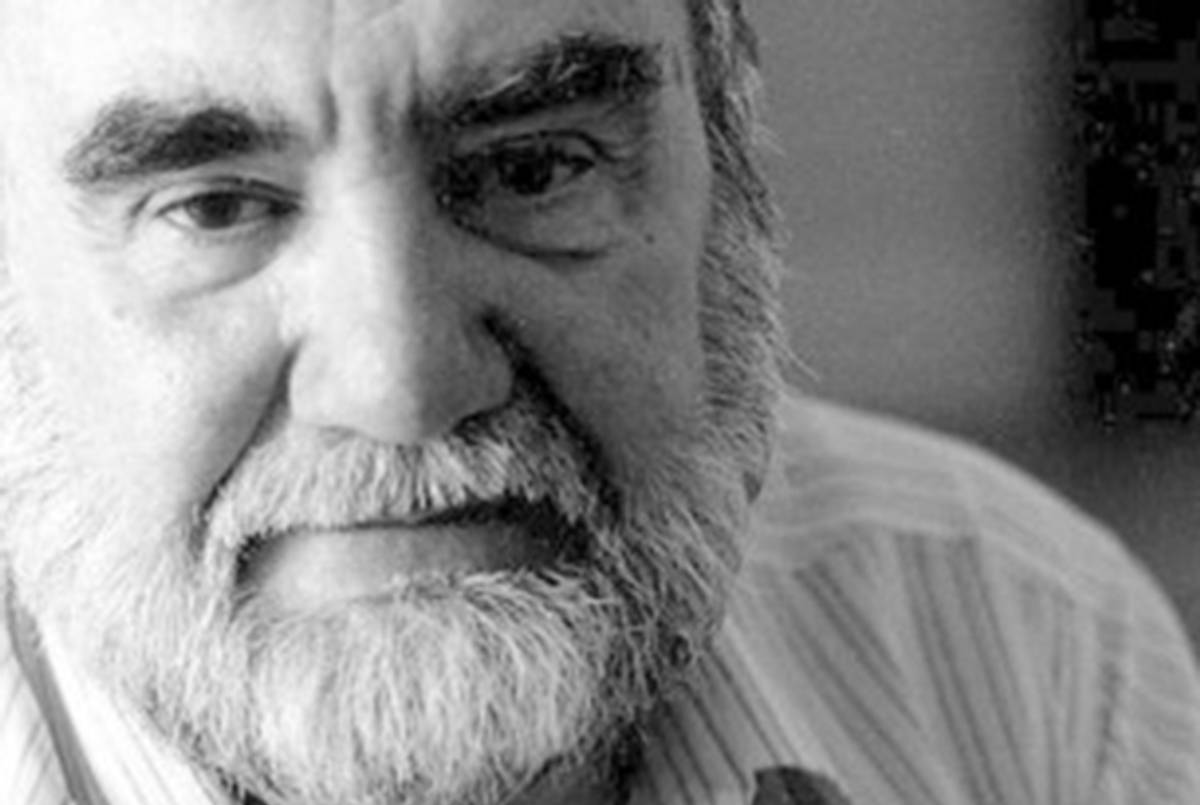
When Jewish-Portuguese poet Herberto Hélder’s book, A Morte Sem Mestre (“The Death Without A Master”), was published last year, no one thought that death would be his master so soon. In fact, publication of Hélder’s next book was scheduled for the coming months. On Monday he had a heart attack and died in his home in Cascais, Portugal, 20 miles from Lisbon. He was 84.
While Hélder is not well-known outside of Portugal, he is considered one of the country’s greatest poets of the late 20th century, on the same level as literary giant Fernando Pessoa. But compared to his more famous literary compatriots like the late José Saramago, Hélder always preferred his poetic art to publicity. There exist very few pictures of him and even fewer interviews, and he had few close friends. When he was awarded the prestigious Portuguese literary prize “Prémio Pessoa” in 1994, he rejected it and instructed the committee: “Don’t tell anyone and just give it to someone else.”
He was born Herberto Hélder Luís Bernardes de Oliveira on November 23, 1930, to a Jewish family on the Atlantic island of Madeira. His mother, Maria Ester dos Anjos Luís Bernardes, died when Hélder was eight years old, an event that left a deep impression on him. The theme of the mother would become a recurring element in his poetry. As a youth he left the island for mainland Portugal, where he studied law and Romanic philology in Lisbon and later in Coimbra, but never completed his studies.
After dropping out of university he returned to Lisbon and was part of a famous group of young artists who met at the Café Gelo in the center of town. There Hélder met painters like Gonçalo Duarte and writers like Hélder Macedo who were influenced by Surrealism, and the famous Portuguese poets Fernando Pessoa and Mário de Sá-Carneiro. The group was not only interested in artistic reform but also opposed the Fascist dictatorship of António Salazar and the resulting social and political stagnation.
But unlike many of his artistic colleagues, Hélder was never a political writer. His whole being was directed towards poetry. In one of his rare interviews he described his fascination with the art form: “A poem is an object filled with magnificent, terrifying powers: put in the right place, at the right moment, according to the right rule it creates a disorder and an order which put the world at an extreme point: the world ends and begins.”
In the late 1950s he contributed to the avant-garde journal Pirâmide 3 and in 1958 published his first book, O Amor em Visita (“The Visiting Love”), a surrealistic poem of just 220 lines. In the following years he was a restless nomad, travelling through various European countries, holding obscure part-time jobs like guiding sailors through red-light districts, tending bars, working as a kitchen clerk or a librarian. In 1961 he published his second book, A Colher na Boca (“The Spoon in the Mouth”), which is still considered one of his greatest works.
His writing always touched the dark, demonic, mystic, and mythological. Hélder’s poems often consisted of long verses, they were lyrical excesses, orphic, rich of metaphors and symbols. He never cared so much for quotidian problems but was obsessed with the enigma of life and death. Therefore, he considered his poems not dialogues with the reader but, as he once said, “an internal organism, coherent and sufficient”.
In the early 1970s he became the editor of a newspaper in Angola, just before the country would become independent from Portugal. During his time in Africa he was involved in a serious car accident in which he almost died. It was another experience that had a lasting impact on Hélder.
After returning to Portugal, he worked at a publishing house and at the public radio tation. Several times he said he would stop writing poetry, and he did so for almost six years, from 1971 to 1977, and later from 1982 to 1987. But he could never fully give up the art of words, and he always had to take up the pen again. In the end, Hélder published more than 30 books, most of them poetry but also books of essays and fiction.
In his letter of condolence, Portuguese president Aníbal Cavaco Silva called Hélder one of the greatest names of Portuguese culture.
Kevin Zdiara is a German freelance journalist with a focus on culture and politics in Portugal and Israel. His writing has appeared in Jewish Ideas Daily, Jewish Chronicle, Jerusalem Post, and Arutz Sheva, among other publications.
Kevin Zdiara is a German freelance journalist with a focus on culture and politics in Portugal and Israel. His writing has appeared in Jewish Ideas Daily, Jewish Chronicle, Jerusalem Post, and Arutz Sheva, among other publications.